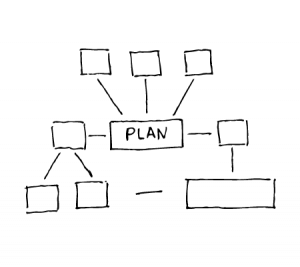If you’re an MBA student on the job hunt, you’ve probably noticed how competitive the market can be. But here’s the good news: artificial intelligence (AI) isn’t just transforming industries — it’s also a secret weapon you can use to help land that post-MBA dream job.
From drafting the perfect cover letter to mastering salary negotiations, AI tools are quickly becoming a must-have in every MBA graduate’s job search toolkit. Here’s how you can tap into the power of AI to set yourself up for success.
1. Nailing the Cover Letter
Let’s face it: writing a great cover letter can be tough. It’s hard to strike the perfect balance between being professional and showing off your personality. That’s where AI tools can be a huge help.
Platforms like Grammarly or ChatGPT can give you suggestions on everything from tone to structure. They can even help you sprinkle in some industry-specific keywords that make your application stand out.
Instead of agonizing over every word, you can let AI give you a head start. “We encourage students in all of our graduate programs to use AI to prepare initial drafts for cover letters and resumes,” says Lyla Korhani, the director of career services at University of Toronto’s Rotman School of Management.
2. Boosting your LinkedIn Profile
Your LinkedIn profile is your online business card, and it’s often the first thing recruiters check out. AI-powered tools like Resume Worded can scan your profile and give you real-time feedback on how to improve it.
They can help you fine-tune your headline, craft a catchy summary, and highlight the skills that recruiters are actually searching for.
So you can make sure your profile doesn’t just sit there collecting digital dust — it actively works to grab the attention of potential employers. And since networking on LinkedIn is so crucial to MBAs, having a profile that pops is more important than ever.
3. Crafting Custom Resumes
Gone are the days of sending out the same resume to every job you apply for; you need to customize your resume for each position. AI can make that easier than ever.
Tools like Rezi and Enhancv can help you tailor your resume to specific industries, roles and companies. They even analyze job descriptions and suggest ways to tweak your resume to better match what hiring managers are looking for.
Plus, AI can help you quantify your achievements. Instead of saying, “Managed a team”, AI might suggest saying, “Led a team of 10 in a $2 million marketing campaign that boosted sales by 20 percent”. Those little changes can make a big difference when you're competing for top jobs. However, Korhani at the Rotman School issues a warning.
“While we encourage students to use these new tools, we caution that they need to take a hands-on approach to look for inaccuracies and to personalize before finalizing any materials being sent to a recruiter,” she warns.
She adds that, at the Rotman School, MBA students meet with their career coach to carefully review their application documents before they’re sent out to companies.
4. Getting Ready for Interviews
Interviews can be nerve-wracking, but AI tools can help you walk into that meeting with confidence. Platforms like Interview Warmup or Big Interview use AI to simulate interview questions and give you feedback on your answers. They’ll flag any nervous habits, like overusing filler words, and help you tighten up your responses.
Even better, AI can help you research the company and predict what kinds of questions you might be asked based on industry trends or specific challenges the company is facing. However, there is a big caveat.
“Over-reliance on AI can lead to generic applications that lack the personal touch needed to stand out,” warns Sudipta Dasmohapatra, senior associate dean of MBA programs at Georgetown University’s McDonough School of Business, in Washington D.C.
She says MBA graduates can navigate these limitations by combining AI tools like VMock and Big Interview with the personalized approach that Rotman takes too.
“Working one-on-one with a career coach is critical to an MBA’s success in gaining the confidence and practice needed to network with industry professionals and highlight unique experiences that set them apart from other candidates,” Dasmohapatra states.
5. Optimizing Your Job Search
That said, she adds that MBA graduates are increasingly leveraging AI to streamline and optimize their job search processes.
We all know the job search can be overwhelming — scrolling through endless job boards, trying to find the perfect fit. AI can help streamline that process, too.
LinkedIn’s AI-powered job recommendations or platforms like Hiration analyze your profile and suggest roles that align with your experience and interests. They essentially take the guesswork out of the search, helping you focus on the jobs that are actually a good match for you.
Georgetown’s Dasmohapatra believes this could actually change the job market for MBA graduates. “AI will help democratize the job search process by giving candidates from diverse backgrounds greater access, as AI tools can help identify and apply to a broader range of jobs efficiently,” she says.
“However, as more candidates use AI to optimize their applications, the competition could intensify, making it harder for individual applications to stand out.”
Ultimately, we are still in the early stages of using AI. Zeynep Tolon, the associate director of careers at Carnegie Mellon University’s Tepper School of Business, spotlights a couple of trends that might evolve.
One is accelerated timelines: “As AI generated materials continue to gain widespread usage, timelines will shrink, more people will need to apply to more jobs and in return, employers will parse through applicants at a far quicker rate. This may cause more competition.”
Second, she believes that companies will start to develop their own personalized AI systems, recruitment materials and application trackers. “In return, you will see students start to think about their own application materials and how they can balance authenticity with a quicker application process.”
-a3a90.jpeg)









